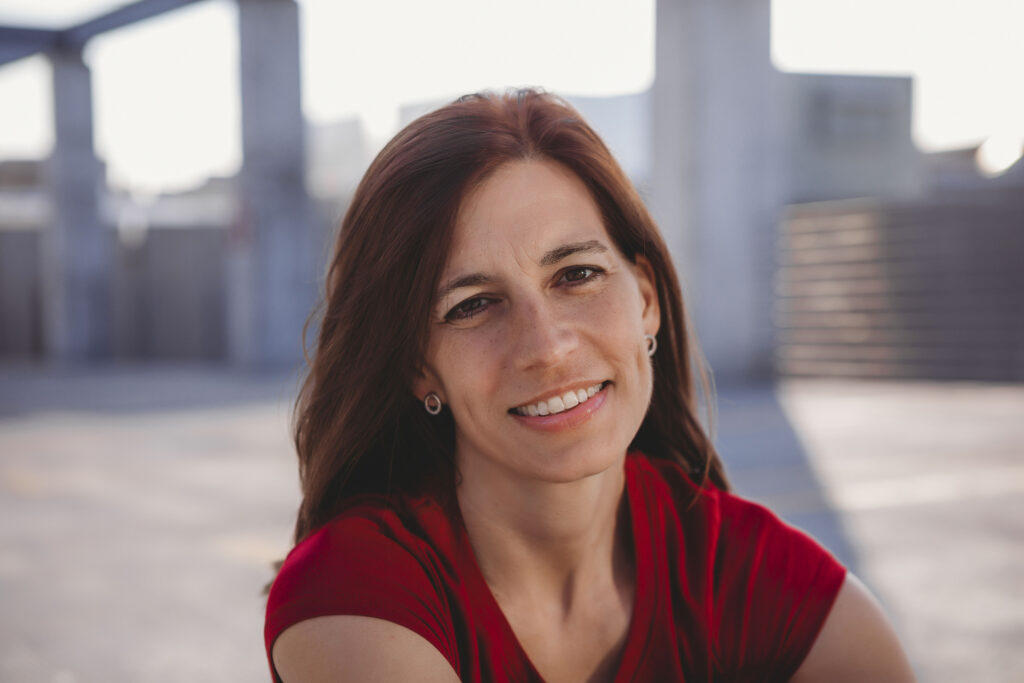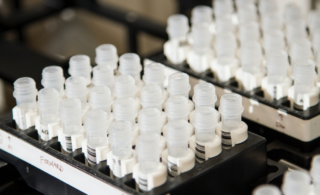
This article sheds light on how sex and intimacy can be difficult for some people after undergoing a mastectomy by sharing one woman’s personal experience together with her advice.
By Kim
Me
Ninety percent of the time, living without my natural breasts is relatively easy. There are days I hardly even think about it. But when I am naked with my husband, it’s impossible to avoid the reality of my reconstructed breasts.
Sex is supposed to be this wonderful, beautiful connection of mind, spirit, and body. But after mastectomy and reconstruction my body felt broken, and sex wasn’t wonderful or beautiful. It was hard. My newly created breasts were like foreign objects to me. Ugly, distracting, foreign objects. It literally took us years of marriage to figure out the whole sex thing, and once we finally got to a satisfying spot, it was like God said, “Okay, now let’s see how you do without boobs.”
It felt so unfair.
But just because something is hard or different or scary, doesn’t mean it’s not worth the effort to overcome. Sex was all three of those things for me, but my relationship with my husband is the most important relationship in my life, and I knew that together we could get through the challenges breast cancer brings to intimacy.
There Is No Formula
There is no formula for the return to intimacy after a mastectomy. We are all individuals, and it affects each of us in different ways but know that many couples find sex at this time a difficult challenge.
My breasts, specifically my nipples, played a major role for me in sex. Unfortunately, my breasts are now nearly numb, and I don’t even have nipples. The key piece of me that used to get my body moving in the direction of sexual satisfaction is gone forever. Psychologist and physical intimacy expert Dr. Juli Slattery suggests, “Instead of viewing [reconstructed breasts] as killing your sex life, begin to view them as a team challenge. Your greatest obstacles can actually become the most powerful invitations to true intimacy,” she said. “You don’t have to learn to listen, forgive, and sacrifice when sex is easy. Those things are forged through the disappointments and conflicts.“
She is right. I have found that clichéd saying “what doesn’t kill you makes you stronger” to be true in some rough patches of marriage that Corey and I have walked through. But the challenges we were having with sex allowed the doubt to creep in anyway.
What if I had kept my right breast? The removal of the left was by necessity, but the right was by choice. A choice I made so I wouldn’t live my life wondering if cancer would come back in the other breast. I have to regularly remind myself that what ifs are useless. When I start going down that road, I consciously remind myself that there’s no going back—only forward.
Initial Return to Intimacy
In the short-term after surgery, there is no sex. The focus is on pain control and healing. But once we get past the hard early days, physical intimacy comes back into the picture. Like I said previously, this will look different for each couple, but below are some things that helped us navigate that road.
- In those first few months of post-cancer sex, I wore a tank top. It may sound counterproductive to ignore this new piece of me that I will spend the rest of my life with, but I had to take one step at a time. And wearing a tank top helped me concentrate on the non-breast cancer related pieces of me.
- I hesitate to write this because it’s slightly mortifying to think of the possibility of my children reading it, but we also started with oral sex. It isn’t for everyone, but it is a gentler way to return to intimacy. It’s easier to avoid contact with the tender places still healing on your body while participating in oral sex, so it can be a good early option to provide satisfaction to one or both of you.
- We paid attention to position. According to Mark Silver’s book Breast Cancer Husband, Meghan Mills, PhD, director of psychosocial oncology at Chicago’s Rush Cancer Institute, said the wife may prefer to be on top, because on top she can decide how active to be and how far to go. She is in control and the husband “doesn’t have to worry about when it’s too much.” We found that to be true.
- We purposely kept our expectations low. Primarily, this meant me offering myself to Corey with zero expectation of an orgasm for myself, and Corey not allowing himself to feel disappointed that he couldn’t yet satisfy me sexually. Adjusting expectations actually took a ton of pressure off of me, and I found deep joy in knowing that I was loving my husband in a way he needed to be loved and doing this little thing for him when he was going over and beyond in the serving me department.
It’s been several years since my reconstruction was completed, and Corey and I are in a good place. We’re not in a perfect place, but we keep moving forward and are more in love now than ever before. Our biggest issue with sex in the past couple years hasn’t even been my changed body but the fact that we have had high school–age children who always seem to be awake. Can I get an “Amen” from those of you with teens in the house?
This article contains excerpts from Life Reconstructed: Navigating the World of Mastectomies and Breast Reconstruction by Kim Harms originally published by Familius copyright 2020.

To return to the homepage of our Information Hub, click here where you can access more helpful information, practical advice, personal stories and more.
Future Dreams hold a range of support groups, classes, workshops and events to help you and your carers during your breast cancer diagnosis – including sessions covering sex and intimacy after a cancer diagnosis. These are held both online and in person at the London-based Future Dreams House. To see what’s on offer and to book your place, see here.
February 2022 (reviewed November 2022)
This article was written by a guest author based on their own experience of breast cancer and its treatment. It is important to note that this is one person’s experience and that whilst there may be commonalities between the experiences of different people, everyone has a different diagnosis/treatment plan/general experience. The information and content provided in all guest articles is intended for information and educational purposes only and is not intended to substitute for professional medical advice. It is important that all personalised care decisions should be made by your medical team. Please contact your medical team for advice on anything covered in this article and/or in relation to your personal situation. Please note that unless otherwise stated, Future Dreams has no affiliation to the guest author of this article and he/she/they have not been paid to write this article. There may be alternative options/products/information available which we encourage you to research when making decisions about treatment and support.
Share

Support awareness research
Donate to those touched by BREAST cancer
Sylvie and Danielle began Future Dreams with just £100 in 2008. They believed nobody should face breast cancer alone. Their legacy lives on in Future Dreams House. We couldn’t continue to fund support services for those touched by breast cancer, raise awareness of breast cancer and promote early diagnosis and advance research into secondary breast cancer without your help. Please consider partnering with us or making a donation.



